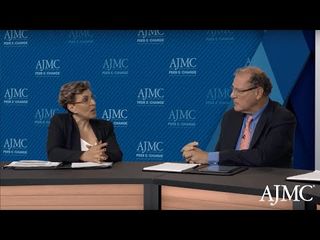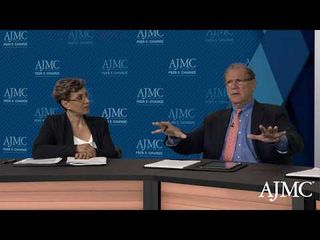
Rare Disease
Latest News

Latest Videos

CME Content
More News

Research presented at EHA2021 shows that the JAK 1/2 inhibitor ruxolitinib produced cost-effective benefits per quality-adjusted life-year and increased the overall survival rate for patients with myelofibrosis.

Despite excellent prognoses in low-risk patients with essential thrombocytopenia (ET) and polycythemia vera (PV), knowledge gaps remain and novel, more tolerable therapies require reevaluation of treatment algorithms.

This new analysis of 5-year data on a novel gene therapy from PTC Therapeutics shows both cognitive and motor function improvement in children with aromatic L-amino acid decarboxylase (AADC) deficiency, a rare central nervous system disorder.

Immune-mediated necrotizing myopathy typically presents with progressive symmetrical proximal muscle weakness and myalgias, although some cases can present with respiratory and esophageal muscle weakness, as seen in this reported case study.

Chronic graft-vs-host disease (GVHD) is a condition that can occur after an allogeneic stem cell transplant in which the donated cells initiate an immune response and attack the transplant recipient’s organs.
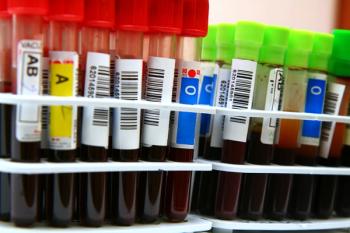
The study of 36 patients showed a response rate of 59% at 3 months, which increased to 62% at 6 months.

The data offer novel insights, as comparable data on the drug class is scarce despite 2 JAK inhibitors being approved for use in myelofibrosis and others showing promise.
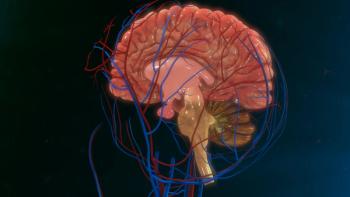
Complications of note in patients with myeloproliferative neoplasm (MPNs) include ischemic stroke, intracerebral and subarachnoid hemorrhage, microbleeds, posterior reversible encephalopathy syndrome, and dural sinus and cerebral vein thrombosis.

From the decision analysis came an agreement that reimbursement for an orphan drug should be based primarily on its effect on health-related quality of life, its effectiveness, and the availability of other treatment options.

Crigler-Najjar Syndrome Type 1 is an ultra-rare disease where treatment relies on a liver transplant or full-day phototherapy sessions.

Gaucher disease is a rare metabolic condition that causes a fatty substance to build up in the organs and bones. Patients can suffer liver enlargement, anemia, and reduced platelets; they experience fatigue, bone infarctions, and permanent disability or death.
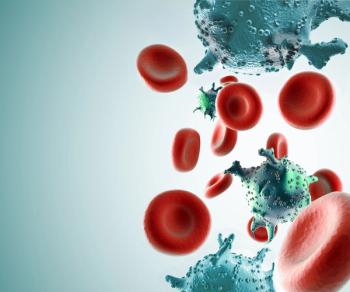
Most studies to date that show efficacy with ruxolitinib in this setting have been in adult patients.

The European-based survey collected information from over 900 patients and caregivers from 25 countries; the responses show a need for both local and national governments to scale up their services for patients with rare metabolic diseases, which also have a positive spillover effects for caregivers.

For pediatric patients with T-cell origin lymphoblastic leukemia (T-LBL) with disease progression following second-line treatment, investigators found that the JAK1/2 pathway may be a new actionable target through treatment with ruxolitinib.

Few cases have documented how myeloproliferative neoplasms, such as polycythemia vera, progress to pure erythroid leukemia, with just 5 such cases reported between 1952 and 1962.

The combination delayed disease progression for a year and a half, suggesting the treatments may be a viable option for patients not eligible for allogeneic stem cell transplantation.

Survey results underscore parents’ frustration with insurers when it comes to caring for their children with rare diseases.

FDA approves avalglucosidase alfa-ngpt (Nexviazyme) for the treatment of patients 1 year and older with late-onset Pompe disease.

According to researchers, the prevalence of progressive supranuclear palsy (PSP) identified by their study is consistent with, but on the lower end, of previously reported estimates.

The study included more than 400 patients with Philadelphia-negative MPNs, all of whom completed a questionnaire related to their tobacco use and symptoms related to their disease.

On this episode of Managed Care Cast, we bring you an excerpt of an interview with an expert in Huntington disease, who discusses the reaction after 2 highly anticipated clinical trials ended this year.

The issue of reactivating hepatitis B and other chronic viruses such as herpes zoster after treatment for myeloproliferative neoplasms (MPN) is an emerging issue in hematologic malignancies, due to the power of newer therapies.

A study abstract presented at the European Hematology Association annual meeting found that, in a real-world setting, ruxolitinib resulted in prolonged survival among patients receiving the treatment following an allogeneic hematopoietic cell transplant.

New data from the REACH3 trial show ruxolitinib resulted in positive outcomes among those with chronic graft-vs-host disease (GVHD).

The nationwide, population-based study analyzed data on over 1900 patients with primary myelofibrosis (pMF), comparing rates of survival from 2001-2010 with 2011-2018.





